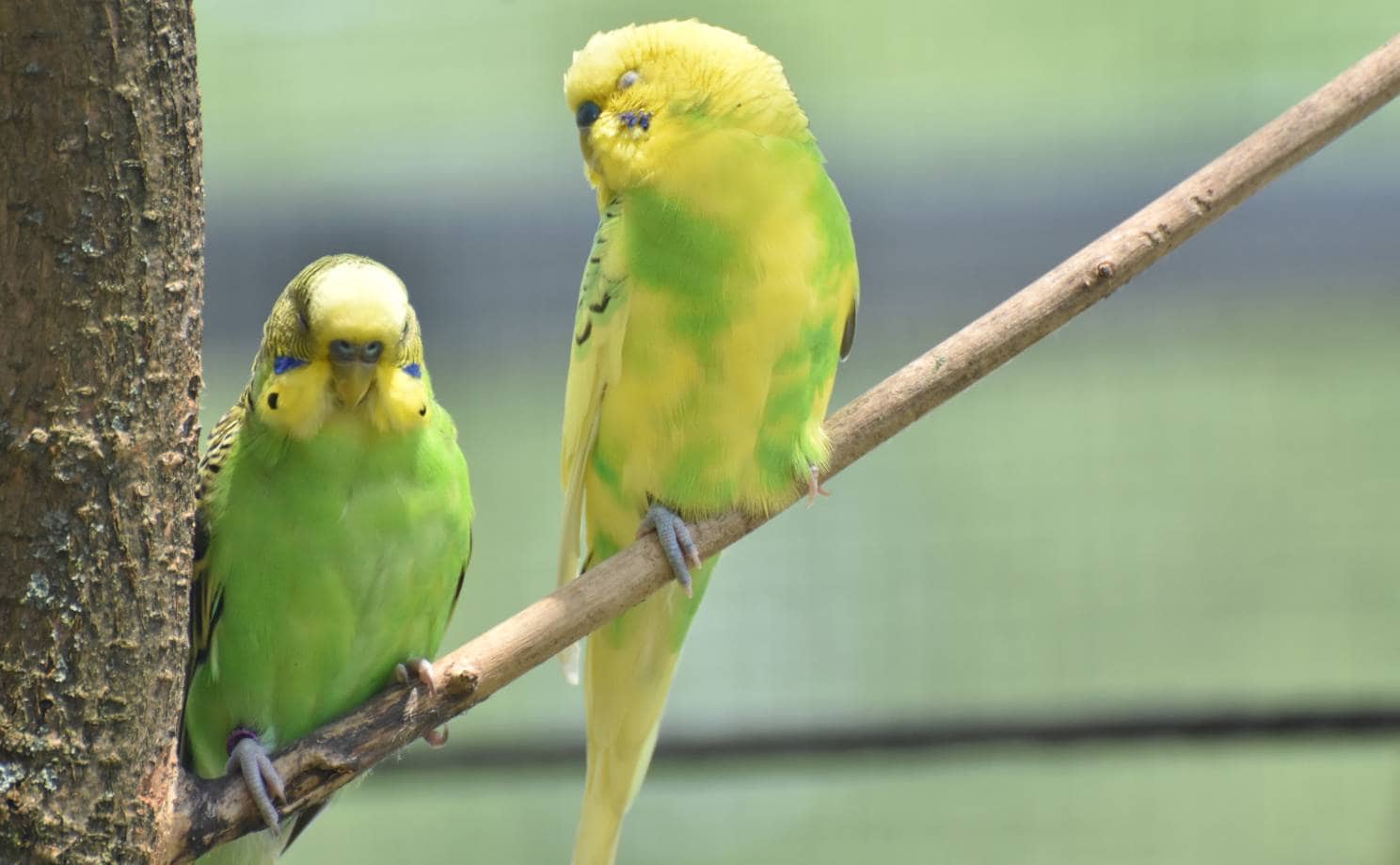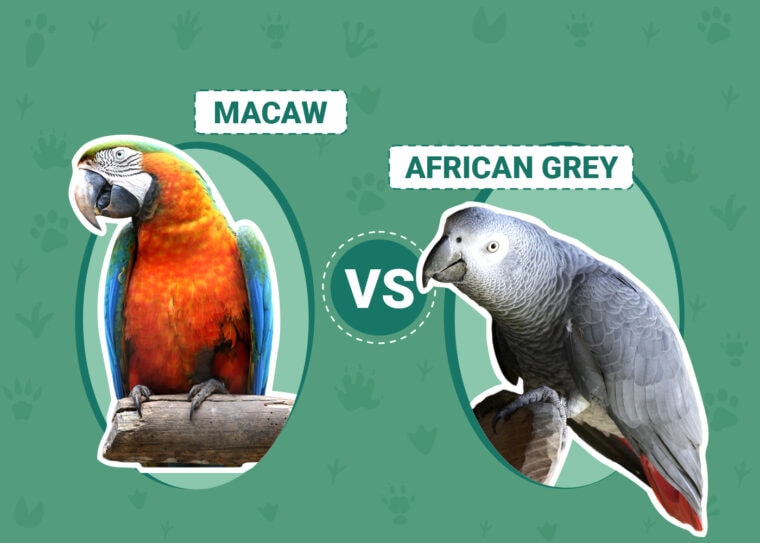
Click to Skip Ahead
Having a parrot as a best friend might be one of the most rewarding relationships of a lifetime. When you look at the comical macaw and brilliant African Grey, it can be a challenge to decide which to pick. Whether you’re new to potential parrot owning or have prior experience, you might be wondering just how much these two vary in personality and care.
They have their obvious differences, both visibly and mentally. Each one requires special care that is specific to that species. While both birds are sure to fill your life with companionship and happiness, one may suit you best. So, which is it going to be?
Visual Differences

At a Glance
Macaw Overview

Personality/Character
Personalities of individual macaws can vary quite a lot. Some might be more aloof while others are incredibly social. However, overall, macaws tend to be fun-loving, talkative, interactive birds with a huge love for people and creatures alike.
Macaws can be quite spirited and mischievous when they want to be. And don’t underestimate their smarts! You’ll definitely have a bird who can outwit you at every turn. They need lots of stimulation and mental exercise to stay happy.
Training
You’ve probably seen the internet littered with macaws doing lots of fun tricks and mimicking sayings. They are incredibly receptive to new concepts, loving the challenge of learning every day. Because of this, it’s incredibly important to cater to their social and intellectual desires.
Some types of macaws can be harder to train than others. But you should never use discouraging tactics to discipline your bird. When you’re training, keep lessons short, sweet, and to the point—and try to stick to a consistent routine.
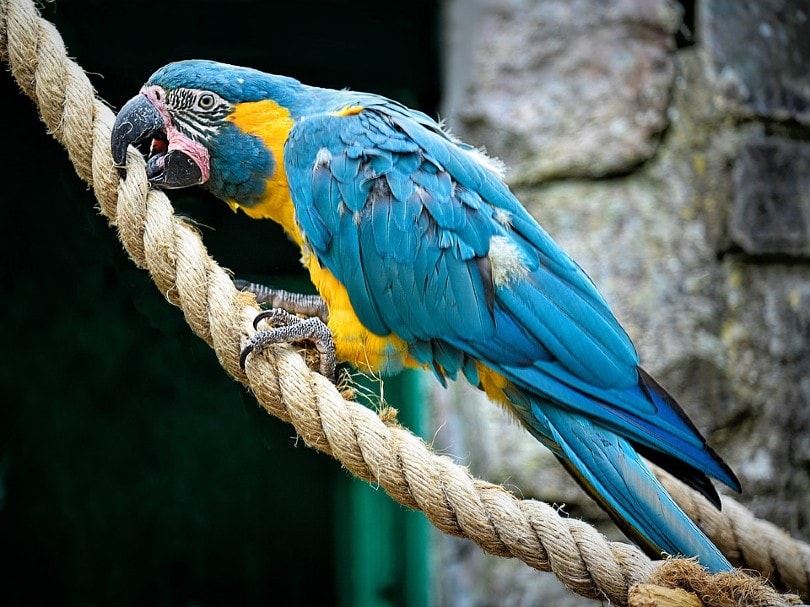
Health & Care
Birds are quite unique when it comes to the type of care they require. You must offer bi-weekly bath sessions. Granted, your macaw will do most of the hard work for you, but baths are super important for skin and feather health.
It’s also important to keep up on their flight feather and nail trimmings. If you have no experience in this arena, it’s best to leave it at the hands of your avian vet or professional handler.
Always keep your macaw up on annual vet care to get ahead of any developing issues.
Breeding
Unless you’re an experienced breeder, you might not want to try this out right off the rip. Breeding can be complicated and you need to know how to properly handle the situation.
They only breed once every one to two years. Females lay up to three eggs each time. Their incubation period is 24 to 48 days before younglings hatch.
- Related Read: Is There a Grey Macaw Bird Species?
Cage Size
Macaws are very large birds and their cage space needs to reflect that. Not only do they need a suitable cage, but they also need an appropriate amount of time out of their enclosure every day.
At a minimum, your macaw should have a cage that is 36”W x 48”D x 60”H. Bars in between shouldn’t exceed 1.5 inches.
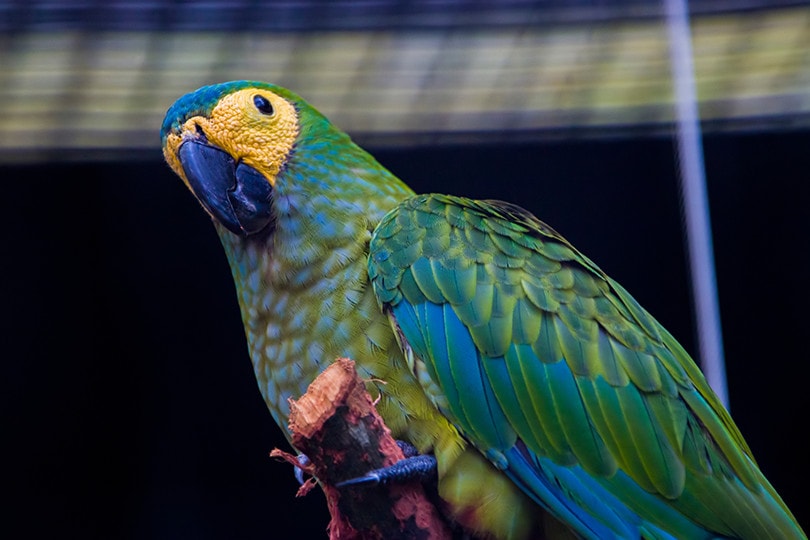
Cost
Macaws range quite a bit in cost since there are so many different types. You can pay anywhere from $850 to $10,000—and this does not include supplies.
Suitable for:
To have a macaw, you have to have a lot of time to dedicate to their needs. So, they don’t fare very well in situations where they’re alone a big portion of the day. Also, you have to accommodate the amount of space they need to live happily. A macaw in too small of a cage can get depressed and develop poor behaviors.
Macaws are ideal for people who want a silly parrot who can be headstrong—and have a huge chunk of time to spend teaching, loving, and nurturing these magnificent parrots.
- You may also like: Cockatoo vs. Macaw: Which One Should You Choose? (With Pictures)
African Grey Overview
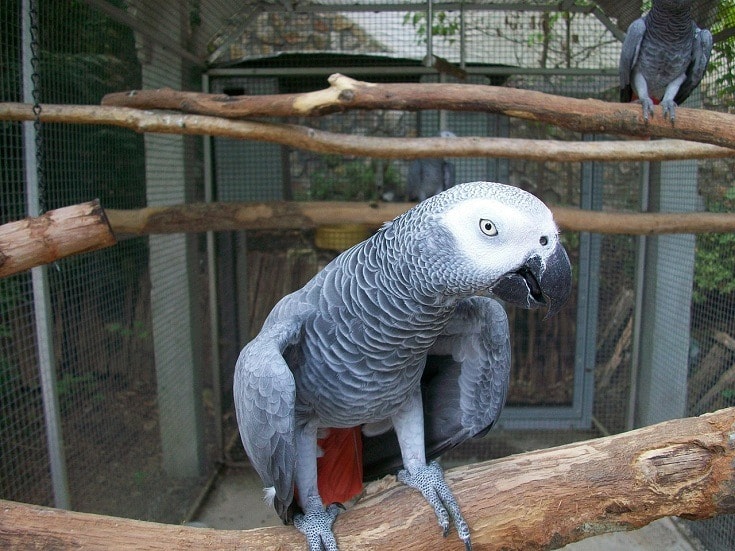
Personality/Character
Because of the African Grey’s exceptional intelligence, they can develop all sorts of personality traits you might not expect. They don’t have a list of adjectives to describe them because they can take on just as many attributes as people—if that puts it into perspective.
But overall, African Greys are incredibly empathetic, affectionate, and bonded to their people. They make amazing companions who are thoroughly devoted and deeply intuitive. While many are social, they might only bond with one person.
Exercise
Exercise is essential for your bird’s happiness and wellbeing. They need to have lots of time out of the cage to spread their wings, play with toys, and spend time with their people. When you’re home, the more you can get your African Grey out, the better.
They love feeling included in all of the household activities. They even love any time spent outside, so they make excellent candidates for aviaries.
Mental exercise is just as important as physical exercise with these birds, too.
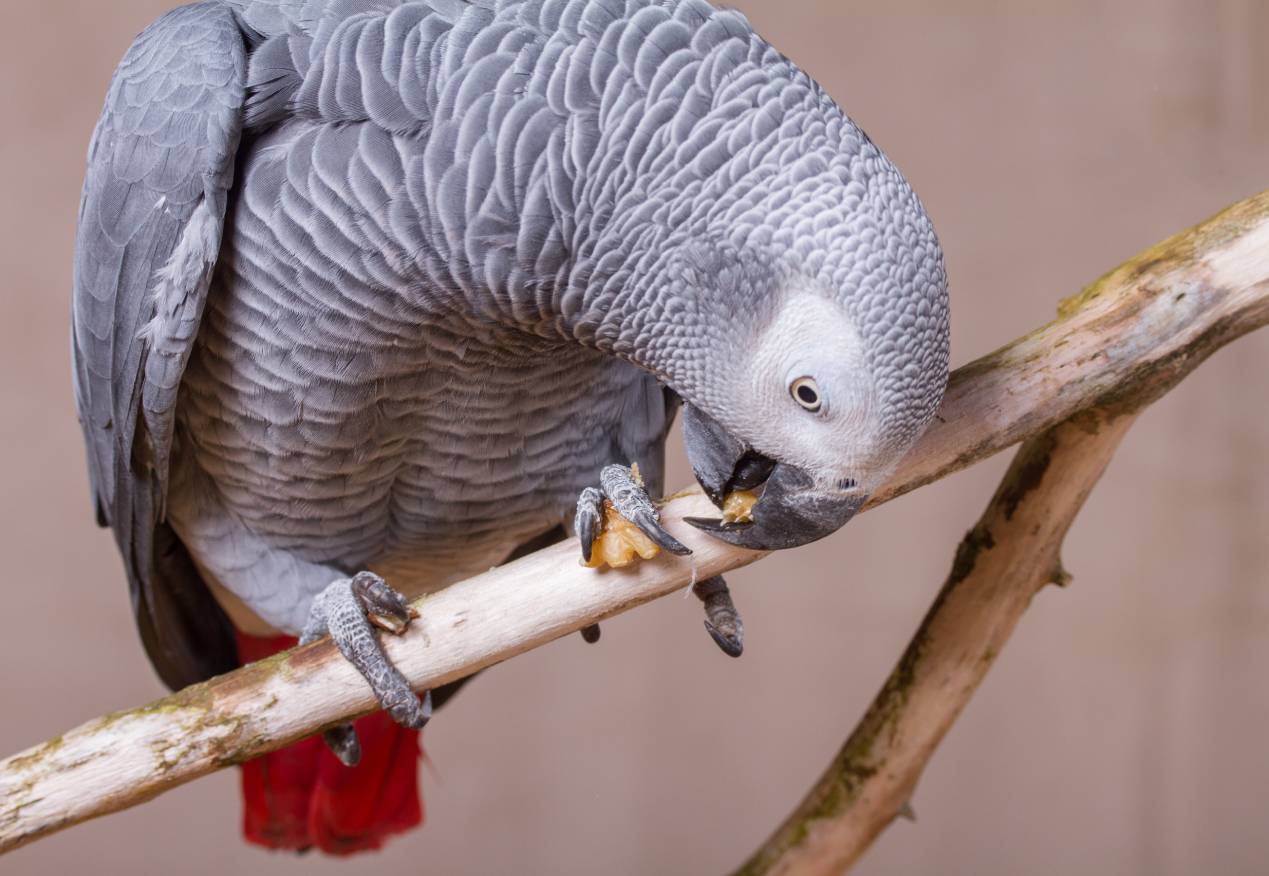
Training
African Greys crave training as a part of their daily structure. They are intense when it comes to learning, so it won’t be anything you have to force. They have a genuine love for performing and soaking in new things. However, these birds can be stubborn, so be prepared.
Greys do best with consistent and repetitive training, but you should keep sessions short. If you work with your bird in intervals, they are much more receptive. Also, make sure to give lots of positive feedback—they love the attention.
Health & Care
Bathing is one of the most important parts of care. To maintain a gorgeous body of feathers, you should offer lukewarm, chemical-free water to your Grey to splash around in. They will have a heyday and you don’t have to do much but observe.
Because these birds can fly quite impressively, you need to make sure you keep up with regular wing trimmings. Because these birds will likely be indoors, they can get severely injured if they have full flight power. Their nails will also need to be trimmed occasionally. Since both nail and feather cutting can be dangerous, you should only allow a licensed vet or professional avian expert to trim them.
Routine checkups with your avian vet of choice help to get ahead of any issues.
Breeding
Unless you have experience or are working alongside someone who does, breeding African Greys might be challenging. They and their young require special care, from diet to environmental changes during this time.
African Greys can lay up to five eggs. Their incubation periods are between 21 and 30 days, depending on the egg.
Cage Size
African Greys are a bit smaller than their macaw cousins, but they still require plenty of space.
For one adult African Grey, the cage should be 24”D x 36”W x 48”H. Bar spacing shouldn’t exceed an inch.
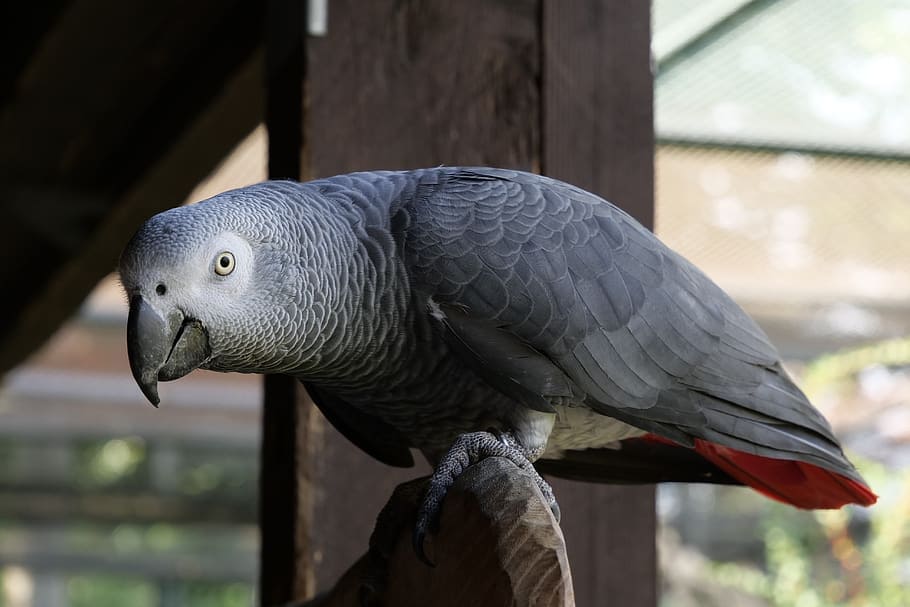
Cost
For an African Grey, you can expect to spend about $1,000 to $1,500, plus additional supply costs.
Suitable for:
If you’re a serious bird lover with a desire for the smartest parrot of all—an African Grey might be for you. These birds are charming, complacent, and remarkably intelligent. If you don’t have a lot of time to spend with them, or if they will be alone for long periods, they might get very depressed.
Consider their living conditions. If you have the space for the cage, the time for care, and the desire for close companionship—you might have met your match.
Summary
Ultimately, only you can decide whether the macaw or African Grey is right for you. But take a look at the details about each and ask yourself which would do best in your home. Would you prefer the attention-hungry macaw who loves to show off for company? Or would you prefer the mild-tempered Grey with an endless desire for learning? You pick.
Just remember, these birds have long lifespans and are quite a commitment. Be ready for any surprise expenses or lifestyle changes so you know if either will work for your situation. You can always check in with local rescues, too. You never know if there is a parrot who needs a second chance.
Featured Image Credit: Top – kayuli, Pixabay | Bottom – Jill Lang, Shutterstock



